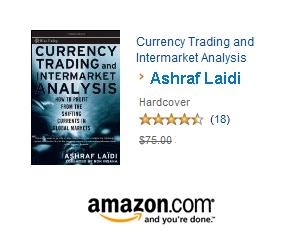Forum > View Topic
by Ashraf Laidi
Posted: Feb 22, 2010 5:00
Comments: 2338
Posted: Feb 22, 2010 5:00
Comments: 2338
Forum Topic:
USD
Discuss USD






Andrius
http://bit.ly/ eW1OT6
EURUSD will need to close FRIDAY ABOVE $1.3490s in order for EURUSD upside to be revived.
Ashraf
thanks
(select HD option when viewing)
http://bit.ly/6OIyH
Analysing EURUSD 55-week MA & the implications of the break
Ashraf
By Martin Wolf
The sky is falling, scream the hysterics: the Federal Reserve is pouring forth dollars in such quantities that they will soon be worthless. Nothing could be further from the truth. As in Japan, the policy known as quantitative easing is far more likely to prove ineffective than lethal. It is a leaky hose, not a monetary Noahs Flood.
So what is the Fed doing? Why is it doing it? Why are the criticisms ludicrous? What should the Fed be doing, instead?
The answer to the first is clear. As the Fed stated on November 3, to promote a stronger pace of economic recovery and to help ensure that inflation, over time, is at levels consistent with its mandate, the [federal open market] committee decided today to expand its holdings of securities. The committee will maintain its existing policy of reinvesting principal payments from its securities holdings. In addition, the committee intends to purchase a further $600bn of longer-term Treasury securities by the end of the second quarter of 2011, a pace of about $75bn per month.
Ben Bernanke, the Fed chairman, gave the rationale in a speech last month. He pointed out that US unemployment is far above any reasonable estimate of equilibrium. Moreover, prospective economic growth makes it unlikely that this will change over the course of 2011. This is bad enough, but what makes it worse is that underlying inflation has fallen to close to 1 per cent, in spite of the expansion of the Feds balance sheet, over which so many tears were shed. Expectations of inflation are well anchored, he added, but that might change once deflation gripped. Given the slack, that might not be far away (see charts).
The Fed, added the chairman, has a dual mandate, to foster maximum unemployment and price stability. Doing nothing would be incompatible with this obligation. The only question is what is to be done. The answer is the proposed purchases of Treasury bonds. This simply extends classic open market operations up the yield curve. It would also only expand the Feds balance sheet by about a quarter, or around 4 per cent of gross domestic product. Is the US really on the same road as the Weimar Republic? In a word, no.
It is hardly a surprise that Wolfgang Schuble, finance minister of Germany, thinks differently. He describes the US growth model as in deep crisis, adding that its not right when the Americans accuse China of manipulating exchange rates and then push the dollar exchange rate lower by opening up the flood gates. Presumably, he believes that, in a proper world, the US would be forced to follow the deflationary route imposed upon Greece and Ireland, instead. This is not going to happen. Nor should it.
Boiled down, the criticisms of the Fed come down to two: its policies are leading to hyperinflation; and they are beggar my neighbour, in consequence, if not intention.
The first of these criticisms is not just wrong, but weird. The essence of the contemporary monetary system is creation of money, out of nothing, by private banks often foolish lending. Why is such privatisation of a public function right and proper, but action by the central bank, to meet pressing public need, a road to catastrophe? When banks will not lend and the broad money supply is barely growing, that is just what it should be doing (see chart).
The hysterics then add that it is impossible to shrink the Feds balance sheet fast enough to prevent excessive monetary expansion. That is also nonsense. If the economy took off, nothing would be easier. Indeed, the Fed explained precisely what it would do in its monetary report to Congress last July. If the worst came to the worst, it could just raise reserve requirements. Since many of its critics believe in 100 per cent reserve banking, why should they object to a move in that direction?
Now turn to the argument that the Fed is deliberately weakening the dollar. Any moderately aware person knows that the Feds mandate does not include the external value of the dollar. Those governments that have piled up an extra $6,8000bn in foreign reserves since January 2000, much of it in dollars, are consenting adults. Not only did no one ask China, the foremost example, to add the huge sum of $2,400bn to its reserves, but many strongly asked it not to do so.
It is also simply false to argue that the weakening dollar is due to Fed policies alone. Indeed, anyone with half a brain should realise that the US can no longer combine a large trade deficit with a manageable fiscal position. Those who want their US bonds to stay sound should welcome anything that helps the US expand domestic demand and rebalance its external position. Current US monetary policies are, contrary to Mr Schubles views, simply the yang to the yin of east Asian mercantilism.
More fundamentally, market forces, not mon
http://bit.ly/cfmbE1
Kam, I answered that question on the EUR thread
Ashraf